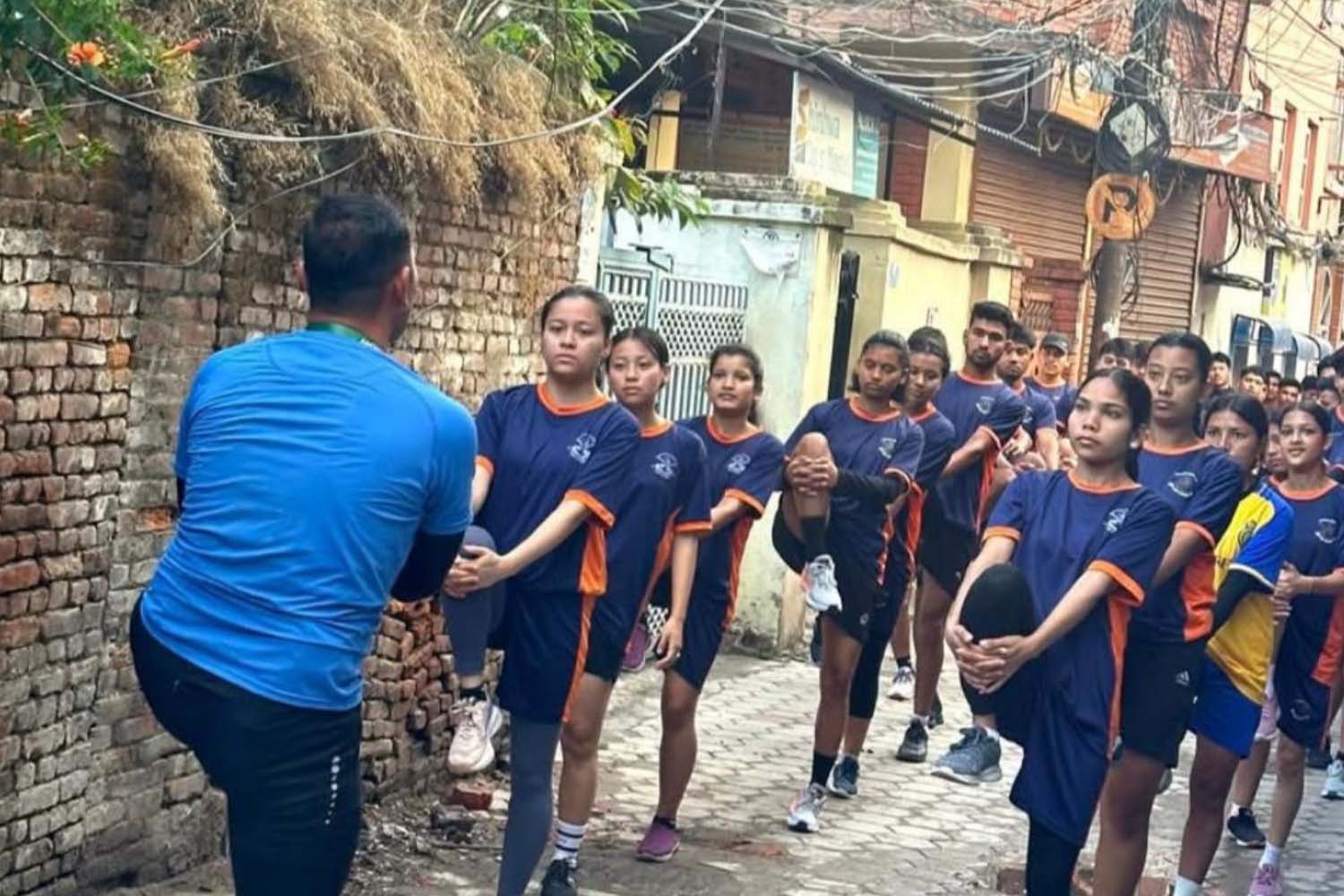
The Gorkha Training Center and the Struggle for Gender Equality in Military Recruitment
In Kathmandu, a training center known as the Salute Gorkha Training Center has long been a gateway for young Nepalese men to join the British Army. Last year, five young men from the center were selected to begin their journey into military service. However, this year, 17-year-old Kanchan Thapa Magar joined the center as the sole female among 70 students. Unlike her male peers, she does not have the option of joining the British Army.
"I think boys and girls are the same," Kanchan said. "I want to go to other places, but I can't go."
Every year, approximately 12,000 young men in Nepal attempt to become Gurkha soldiers, but only 200 to 400 are chosen. The selection process is highly competitive and physically demanding. Unlike the training for the Nepal Army or Police Force, which requires meeting minimum physical standards—such as performing 12 push-ups for male recruits—Gurkha trainees must push themselves to the limit to secure one of the few spots available in the British Army.
In 2018, the UK Defence Ministry announced plans to recruit Nepali women into the Gurkha Brigade. However, this initiative was blocked by Nepal’s parliament in 2019. Despite recent statements from British Defense Minister Luke Pollard expressing interest in recruiting female Gurkha soldiers, the Nepal government has yet to respond.
The British Embassy stated in a recent communication that the UK government has long supported the idea of allowing Nepali women to join the Gurkhas. However, any changes would require collaboration with the Nepali government. The Nepal Ministry of Foreign Affairs has not commented on its stance regarding female recruitment.
Rahul Pandey, CEO of the Salute Gorkha Training Center, recalls the excitement among women when the possibility of joining the British Army was first introduced. At the time, he was training 45 women who hoped to be selected to join the Gurkhas starting in 2020. When the opportunity was denied, most of them turned to the Nepal Army or pursued higher education in other fields.
In February 2019, the House of Representatives Committee on International Relations passed a resolution to block the recruitment of Nepali women into the British Army without the consent of the Nepali government. The records do not explain why the committee made this decision. According to Under-secretary Sharada Bhandari, any future policy changes must come from the same committee, which holds the authority to direct the government on this issue.
Pandey believes that the women who missed out on the chance to join the Gurkhas lost a valuable opportunity. He argues that it is a secure, long-term job that could significantly change women's lives. "Allowing female Gurkhas would be an equal opportunity in action, not just words," he said.
For many young women in Nepal, joining the military is seen as a viable career path. Eighteen-year-old Elisa Bastola is currently training at Dima Academy and hopes to become a pilot in the Nepal Army. "The army gives a good opportunity for independence," she said. "Women can live the life they want, and earning is in their hands."
However, the lack of international opportunities for women is a source of frustration. Nineteen-year-old Simran Maharjan, who is training to join the Nepal Army, expressed her desire to have the same options as her male counterparts. "If there was a chance, then of course we would go," she said.
Nineteen-year-old Khusi Maya Thapa recently passed her exam to become eligible for recruitment into the Nepal Army. While she is excited about the possibility of joining the military, she wishes she had the option to serve abroad. "Having the option would be better," she said. "It would be a good opportunity because we are hardly getting opportunities [in the army] now."
This year, the Nepal Army will recruit 24 women out of 128 who passed the Public Service Commission exam. That is just 18.7 percent of the total. If the Nepali government allows the British Army to recruit female Gurkhas, women would still face challenges convincing their families to let them go abroad as soldiers.
"Some women need to force their parents to let them enroll [for the Nepal Army], how will they convince them to let them go to the British Army?" Khusi asked.
Pandey acknowledged that the training for women was more challenging than for men due to physical differences. "It was quite hard for them compared to the boys because they are physically a little bit weaker," he said.
Despite these challenges, Kanchan Thapa Magar remains determined. With her 18th birthday approaching in May, she is focused on her training. "Because I'm interested, the training is easy," she said.
